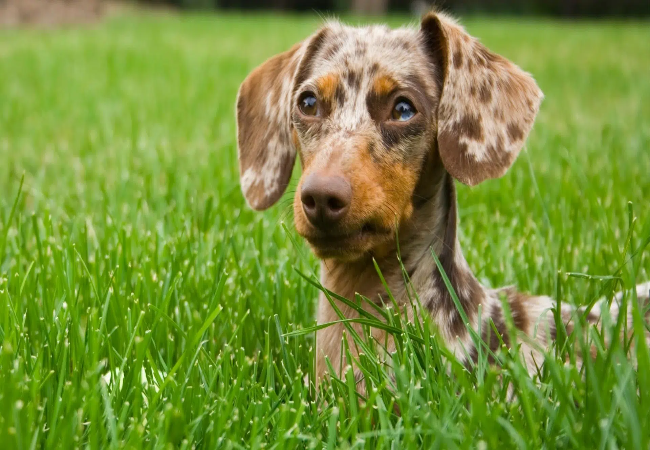Why Dogs Eat Grass: Vet Approved Insights & Safe Guidelines for 2025 🌿🐾

In this article
Why Dogs Eat Grass: Vet Approved Insights & Safe Guidelines for 2025 🌿🐾
By Dr. Duncan Houston BVSc
Have you seen your pup chomping on grass? While often harmless, this behavior can have several causes. As a vet 🩺, here’s a comprehensive guide—rooted in science—to help you understand why dogs eat grass, when it’s normal, and when to seek help.
1️⃣ Instinctual Behavior from Ancestral Canids
Wild canids—like wolves and foxes—occasionally ingest plant material. Domestic dogs retain this instinct. Many eat grass simply because it’s natural.
2️⃣ Getting Extra Fiber or Nutrients
Some dogs nibble grass to add roughage to their diet. A case report showed a poodle’s grass-eating stopped after switching to a high-fiber diet.
3️⃣ Mild Stomach Upset or Nausea
Occasionally, dogs eat grass when their stomach’s off—especially if they then vomit. However, most dogs who eat grass don’t vomit, suggesting it’s not always a self-medication tactic.
4️⃣ A Normal & Enjoyable Behavior
Research shows dogs eat less grass after eating a meal and less as the day goes on—indicating it’s often a normal, non-urgent behavior.
5️⃣ Boredom, Anxiety, or Pica
Grass-eating can sometimes signal boredom, stress, or pica (eating non-food items). If it's compulsive or paired with unusual items—like dirt—consult your vet.
⚠️ When to Be Concerned
- 🌾 Excessive grass consumption or compulsive chewing
- 🤢 Regular vomiting, especially with bile, blood, or foamy discharge
- ❗ Presence of other symptoms: diarrhea, lethargy, appetite loss
- 💉 Ingesting treated lawns—could be toxic
In these cases, contact your vet—early intervention prevents bigger issues.
✅ Safe & Supportive Tips
- Choose grassy areas free from pesticides or fertilizers
- Ensure a balanced diet with enough fiber
- Observe behavior—vets may check for nausea or intestine issues
- Increase exercise and mental stimulation for bored pups
- Monitor and limit grass-eating if it seems obsessive
📊 Quick Summary Table
| Reason | Signs | When to Act |
|---|---|---|
| Instinct | Occasional chewing | Usually OK |
| Fiber need | Post-meal munching | Consider diet |
| Nausea relief | Vomiting after eating grass | Vet visit advised |
| Boredom/pica | Compulsive eating of non-food | Behavior consult |
| Dietary deficiency | Frequent eating stops with diet change | Adjust food/Fiber |
🔍 Final Thoughts
In most cases, grass-eating is normal behavior. Still, if it's excessive or accompanied by other issues—like vomiting or lethargy—it's best to seek veterinary advice. With proper diet, monitoring, and enrichment, you can keep your pup happy and healthy in 2025 and beyond! 🐶🌟
Need tailored guidance or dietary help? Download the Ask A Vet app for 24/7 expert advice on behavior and health. 📱🐾






